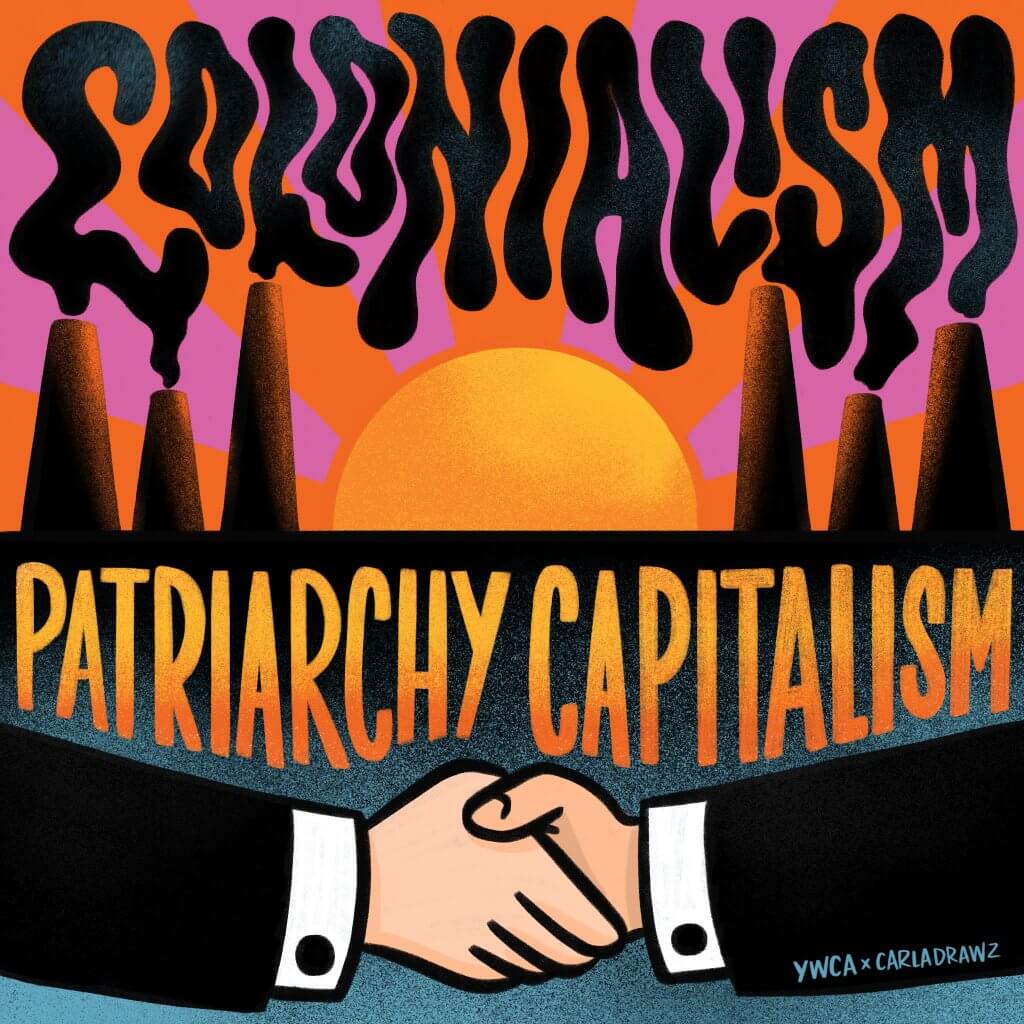Written by Maiysha Moin
Climate change is the greatest global challenge of our era. It is the number one issue of concern for young people and that’s why we’re voting for bold action to address it.
Here in Australia, four out of five of us are already experiencing the impacts of climate change. Globally, the changing climate is a reflection of violence practiced against the planet and environment, it is also a driver of gender-based violence (GBV). Climate justice, a term that encapsulates the ethical, political and environmental dimensions of climate change, is critical to protecting the planet, our future and also ending gender-based violence.
Climate change is a feminist issue
Women are disproportionately impacted by climate change. Women make up the majority of the world’s low- or no-income households, and are more likely to be caring for children or other family members. Patriarchal norms we see across the world have entrenched women’s traditional role as caregivers and men’s traditional role as providers. These gender stereotypes are drivers for gender-based violence following natural disasters, which will occur more frequently and intensely with a changing climate.
For men, the impacts of climate change places stress on patriarchal expectations and gender stereotypes to provide for the family. Disaster response responsibilities, loss of jobs, crop failure and loss of livestock impact upon men to fulfil the pressure to provide, compounding existing inequalities. Areas prone to cyclones, such as Vanuatu and Bangladesh, have identified the trend of increased intimate partner violence post-cyclone. Other instances of GBV following natural disasters have been well-documented, linking how the patriarchy and climate change combine to create unsafe and dangerous conditions for women and children.
The intersections of climate and GBV
Increased exploitation of natural resources in a changing climate has also connected to GBV as a means to assert control over natural resources and strengthen privilege and power. Strong links have been identified between environmental crime, i.e. exploitation of resources, and GBV. Sexual abuse and exploitation have been prevalent in illegal fishing industries in South-East Asia and in the illegal logging trade in Congo. Sex trafficking and GBV against all genders has also been reported in illegal mines in Colombia and Peru.
Climate change and GBV associated with its impacts will disproportionately affect marginalised communities.
First Nations communities are more likely to have to move from their homes, and First Nations women are more likely to experience GBV and subsequent racism and discrimination when accessing support. Rising sea levels threaten Torres Strait Islander communities which are located on low-lying islands, and bushfires and drought will likely become more frequent and severe for remote Aboriginal communities. Young First Nations activists are leading the way with the voices and leadership of First Nations experts in driving urgent transformative change essential for our planet.
The disabled community has also been recognised by the United Nations as being disproportionately affected by climate change because of socio-economic and political barriers they may face in adapting to the changing climate, sometimes referred to as eco-ableism. In times of climate disaster, people with a disability are often left behind; A person with a disability is two to four times more likely to die or be critically injured in a climate-related disaster due to lack of access to information, accessible emergency shelters, or lack of transportation and mobility limitations. There are alarming rates of family, domestic and sexual violence of women and girls with disability with 2 in 5 (40% or 1.2 million) women with disability have experienced physical violence after the age of 15, compared with 26% (or 1.7 million) without disability . In times of crisis the risks escalate and with climate disasters on the rise, we can’t hold back on urgent action.
Creating change
The leadership of women and gender diverse people must be celebrated, but it must also be acknowledged that key decision-making roles are often held by men in suits and conglomerates operating under patriarchal practices.
Young people have been rising up to meet the vacuum of political leadership around climate change. Notably, movements for climate justice have been led and championed by young women and girls. Their powerful leadership has caught the attention of the world and global leaders to take ambitious climate action. The leadership of women and gender diverse people must be celebrated, but it must also be acknowledged that key decision-making roles are often held by men in suits and conglomerates operating under patriarchal practices. The activism and advocacy of these young people is often unpaid and undervalued for the change they create.
Climate scientists warn that we have only one more decade to take transformative action before we suffer the consequences of destruction and inaction on the climate crisis. To tackle climate change and gender-based violence, global leaders must envoke gender-responsive climate policies, informed by women and gender diverse people, especially First Nations leaders and experts. The voices of those impacted most by climate change must be at the forefront of decision making. A transition to clean energy and climate adaptation must also apply a gender lens to make sure equality is embedded as women transition into new climate-responsive workforces.
We want and need to be safe in our shared home. We need urgent action on the climate crisis. If you haven’t already signed our open letter and show that at the next Federal election you’ll be voting to end the climate crisis.





